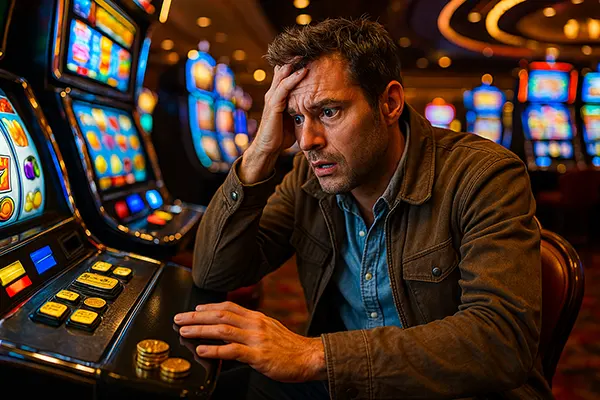
Behavioural Economics in Casinos: Why Players Make Irrational Decisions
In the world of gambling, players often believe they are making rational choices based on strategy and chance. However, the reality is far more complex. Behavioural economics—a field at the intersection of psychology and economics—explains why individuals frequently act against their own best interests, especially in high-stakes environments like casinos. Understanding these mechanisms is crucial for both casino operators and responsible players alike.
The Illusion of Control and Gambler’s Fallacy
One of the most common cognitive biases found in casinos is the illusion of control. Players tend to overestimate their ability to influence random outcomes, particularly in games like slot machines or roulette. For example, pressing the spin button at a “perfect” moment creates a false sense of mastery over the game. Despite being fully random, these interactions give players a feeling that their decisions have a direct effect on the result.
Another major factor is the gambler’s fallacy—the belief that past outcomes affect future events in games of chance. For instance, if red appears five times in a row at the roulette table, many players will incorrectly believe that black is “due.” This misunderstanding of probability leads to irrational bets and often, significant financial losses.
These biases are not limited to novices. Even experienced gamblers fall prey to them, especially during emotionally charged sessions. Casinos are designed to amplify these feelings, with sensory stimuli and rapid gameplay encouraging impulsive behaviour rather than calculated decision-making.
Reward Systems and Near-Misses
Slot machines and similar games use reward mechanisms borrowed from behavioural psychology, particularly intermittent reinforcement schedules. These systems reward players unpredictably, which has been shown to be more addictive than consistent rewards. The uncertainty of wins creates a powerful compulsion to continue playing, even when losses accumulate.
Near-misses—outcomes that are close to winning but ultimately unsuccessful—also play a significant role. Neuroscientific research has found that near-misses activate the same brain regions as actual wins, tricking the mind into feeling rewarded. This keeps players engaged, under the false impression that success is just around the corner.
Casinos use these tools intentionally. Flashing lights, celebratory sounds, and quick spin animations all contribute to an environment where irrational behaviour is normalised and even encouraged. Recognising these tactics can help players make more informed, conscious decisions.
Loss Aversion and the Sunk Cost Fallacy
Loss aversion—the idea that people feel the pain of loss more acutely than the pleasure of gain—is a cornerstone of behavioural economics. In a casino setting, this often manifests as chasing losses. When players experience a series of defeats, they may increase their bets irrationally in an attempt to recover their funds, even if the probability of winning remains unchanged.
The sunk cost fallacy further complicates this behaviour. Once money, time, or effort has been invested into a gambling session, players are less likely to walk away, even when continuing is clearly disadvantageous. They convince themselves that they’re “due” a win, leading to escalating losses and emotional burnout.
Casinos subtly exploit this by offering loyalty programmes and rewards based on time spent or money wagered. These perks incentivise prolonged play, encouraging players to overlook their losses in pursuit of perceived long-term gains. Understanding these psychological traps is vital for anyone who wants to gamble responsibly.
Emotional Triggers and Impulsivity
Gambling environments are carefully crafted to elicit emotional responses. Bright lights, celebratory noises, and the constant buzz of activity stimulate dopamine release in the brain, which is closely linked to feelings of excitement and reward. These physiological changes make it harder for players to think rationally.
When emotions run high—whether due to a big win or a painful loss—decision-making becomes impulsive. Players may double their bets, switch games, or abandon strategies altogether, acting on instinct rather than logic. The casino environment capitalises on these impulsive moments to keep the momentum going.
This is especially problematic for individuals with poor impulse control or those under the influence of alcohol, which is commonly offered for free in land-based casinos. The result is a cycle of emotionally driven decisions that can spiral into financial distress.

Overconfidence and Social Influence
Many gamblers believe they are more skilled or luckier than they actually are. This overconfidence leads to riskier bets and larger losses. Cognitive studies have shown that individuals consistently overestimate their ability to predict outcomes or control random events—especially in games with an illusion of skill, like poker or blackjack.
Social influence is another powerful factor. In both physical and online casinos, the presence of others can alter behaviour. Seeing someone else win can create a “herd mentality,” prompting players to bet more aggressively in hopes of similar success. In group settings, players are more likely to take risks they wouldn’t take alone.
Casinos enhance this effect with public win announcements, shared jackpots, and leaderboard systems. These strategies foster a sense of community and competition, pushing individuals to stay in the game longer and bet more frequently. Recognising this influence can help players maintain control over their choices.
The Role of Personal Beliefs and Superstitions
Many gamblers develop rituals or superstitions that they believe influence outcomes—such as wearing a “lucky” item or avoiding certain machines. These behaviours provide a sense of comfort and predictability in an environment governed by chance. While harmless on the surface, they can lead to irrational decision-making.
These beliefs are reinforced through selective memory. Wins that align with the ritual are remembered, while contradictory losses are forgotten or rationalised. Over time, these patterns build into a false belief system that shapes how players approach the game.
Casinos rarely discourage such behaviour, as it keeps players engaged and emotionally invested. However, by recognising superstitions for what they are—cognitive illusions—players can make more rational decisions and set healthier boundaries for their gambling activities.
